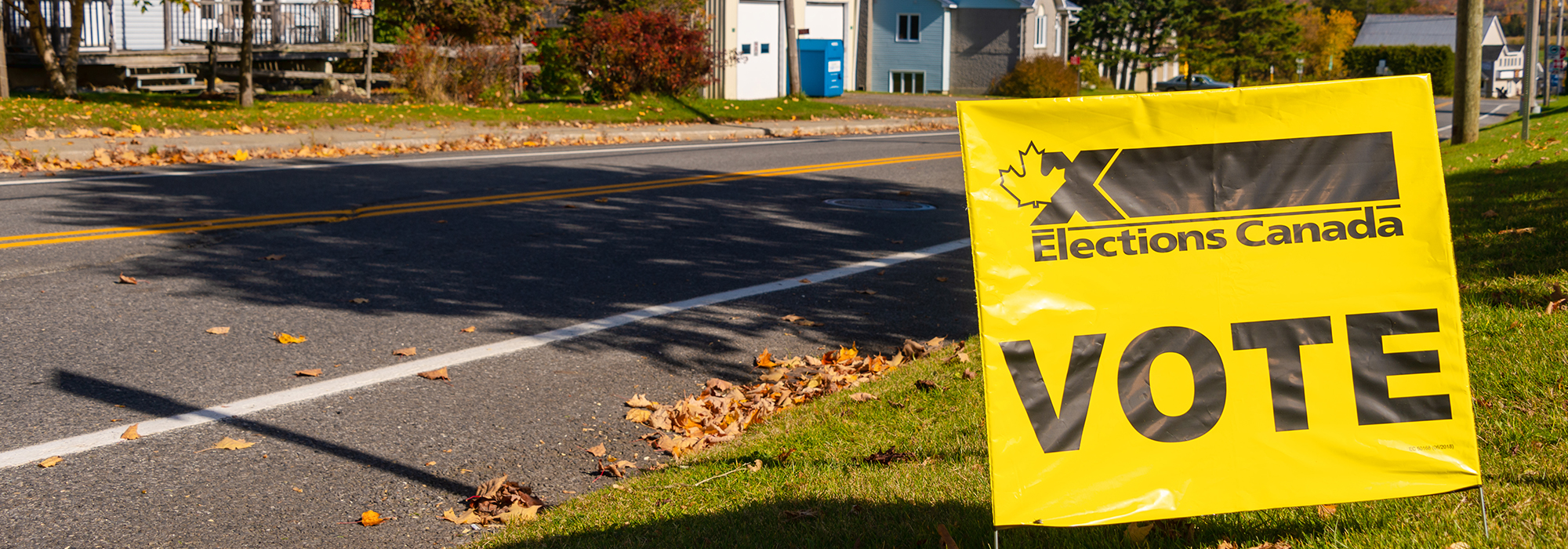
The controversial outcome of the general election in October 2019 will undoubtedly re-ignite a century-old debate over the use of the first-past-the-post electoral system we use in Canada, known formally as the single-member-plurality system.
The electoral results were unjust: The popular vote didn’t translate into seats. The sense of national disunity was exaggerated, and minority voices were stifled. This has left the Prime Minister with the task of ensuring two provinces where his party won no seats are represented in the cabinet.
These are the kind of results that trivialize Canada’s commitment to democracy. They have lent credence to those who argue that the first-past-the-post system is not democratic and have called for replacing it with the proportional representation.
Overhauling our electoral system was a core Liberal campaign promise in the 2015 election. There are compelling grounds for doing this.
The 2019 election was yet again one in which the popular vote failed to translate into seats in the House of Commons. The NDP received 15.9 percent of the popular vote but was awarded only 24 seats. Meanwhile, the Bloc Québécois was able to translate its 7.7 percent share of the popular vote into 32 seats. This is a distortion of the relationship between the popular vote and seats in the House of Commons.
The first-past-the-post system might also exaggerate the degree of national disunity, projecting a distorted image of Canada. The Canadian scholar Alan C. Cairns pointed this out in 1967, saying that the electoral system is divisive and detrimental to Canadian national unity.
Over the years, the Parti Québécois has in some provincial elections been able to form majority government in Quebec without receiving the majority of the popular vote. Had the 43rd federal election been based on a system of proportional representation, the Bloc Québécois would have won 25 seats in Quebec (7.7 percent of 338 seats in the House of Commons) and Quebec would have still retained its 78 seats in the House of Commons.
In distorting the relationship between the popular vote and seats, first-past-the-post also tends to encourage strategic voting. Almost 33 percent of voters in the October federal election voted strategically to prevent one or another party from winning. What we have is essentially a two-party system, with minor parties squeezed out by strategic voting.
Instead of voting for parties that suit their political ideas, strategic voters choose another party in hopes of preventing a party they dislike from gaining power. No one can blame them. There are several candidates in each electoral riding, but only the one with the most votes will be declared the winner.
The whole philosophy of strategic voting is predicated on a rational calculation to not only prevent a particular party from gaining power but also avoid wasting votes. Strategic voting mutes minority voices and prevents alternative policy platforms from being represented in the House of Commons. It also fosters political vindictiveness and a revenge mentality, both of which run counter to the democratic principles of dialogue and consensus. A democratic society must be open and receptive to new ideas and perspectives. A revenge mentality breeds intolerance, which is bound to erode democracy.
In a democracy, voters are expected to vote with their consciences, and endorse candidates and political parties that have declared their commitment to advance public policies that reflect voters’ interests. As Green Party leader Elizabeth May pointed out, under first-past-the-post, voters have internalized the idea that they cannot vote for what they want, which is an unfortunate message in a democracy.
The system could well pressure the prime minster to resort to controversial practices to make sure provinces are represented within the cabinet. In forming his cabinet, the prime minister is subject to a convention that all provinces are represented in the cabinet. This has emerged as a response to the failure of the Senate to perform its intended and traditional role in representing provincial interests in Ottawa. Instead of acting as a genuine house of the provinces, the Senate has been turned into a house of political appointees. Though the Senate has on certain occasions vetoed bills passed by the House of Commons, senators are well aware Canadians’ expectation that appointed officials should not overrule the democratic wishes of people as expressed through the House of Commons, which is an elected body. There have been several attempts to turn the Senate into an effective, equal and elected body that could represent provincial and regional interests, but they have been unsuccessful.
It is due to this failure of the Senate to represent provincial interests that constitutional conventions call for provincial interests to be represented in the federal cabinet, the highest decision-making body at the national level. The prime minister is conventionally required to adhere to the principle of provincial representation in his or her chosen cabinet.
But in the 2019 federal election, the Liberal Party failed to gain any seats in Saskatchewan and Alberta. To ensure the representation of these two provinces in the cabinet, Prime Minister Justin Trudeau has two choices: Appoint one or two unelected senators or individuals from those two provinces. For the first option, bringing someone from the Senate to the cabinet would run counter to Trudeau’s promise to turn the Senate into an independent body. In the second scenario, the selected individual, having no seat in the House of Commons or the Senate, would have to by convention run in a by-election and win to be able to sit as a member of the cabinet. There’s no guarantee the governing party’s caucus would like the Prime Minister’s pick, and this could lead to disgruntlement and resentment.
One of the main arguments in support of first-past-the-post is that it is likely to produce a strong, stable government. The logical corollary is that proportional representation generally produces minority or coalition governments that are weak and unstable. But there is no evidence that proportional representation is associated with instability or that it triggers more frequent elections. Germany, New Zealand, Sweden, Scotland, Denmark and most of the OECD countries have been using proportional representation for decades.
Furthermore, the health and vibrancy of democracy is not measured by the speed and efficiency of the law-making process, but by the firm commitment to adhere to the democratic principles of deliberation, consensus and inclusion of diverse societal interests in public policy decision-making.
Compared with first-past-the-post, proportional representation is better at improving the quality of representation by providing more latitude for minor parties to participate in parliamentary deliberation and debate, and increasing the representation of women, ethnic groups and cultural minorities.
There is an urgent imperative to replace first-past-the-post with proportional representation, which has been practiced by many liberal democratic societies. Doing so would eliminate the egregious disparity between votes and seats, do away with strategic voting, stop penalizing nationally oriented parties that appeal to the whole country, and stop rewarding parochial political parties that mainly focus on a region or province. It would enhance national unity, prevent unelected individuals from being catapulted into cabinet positions and improve representation.
The democratic legitimacy of an election is reflected in its ability to produce just, inclusive and equitable outcomes. The current electoral system has failed to deliver these cherished outcomes. Canada needs democratic renewal and rejuvenation of its electoral method, which is prone to generating controversial electoral results that are likely to tarnish our democratic political institutions. Reforming our electoral system does not require a constitutional amendment. It can be accomplished by a simple act of Parliament. NDP Leader Jagmeet Singh, who has characterized the current electoral system as broken and in need of repair, is in a strategic position to utilize his party’s coalition leverage to exert pressure on Prime Minister Trudeau to revisit and rectify his unfulfilled promise to reform the electoral system.
Photo: Shutterstock, by Marc Bruxelle
Do you have something to say about the article you just read? Be part of the Policy Options discussion, and send in your own submission. Here is a link on how to do it. | Souhaitez-vous réagir à cet article ? Joignez-vous aux débats d’Options politiques et soumettez-nous votre texte en suivant ces directives.









